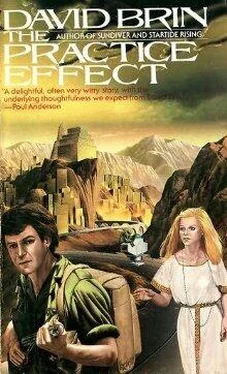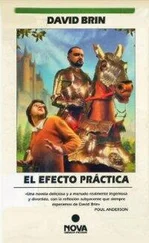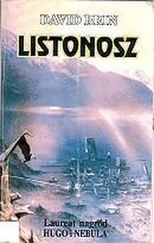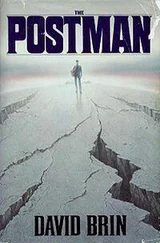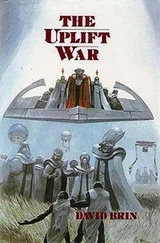David Brin - The Practice Effect
Здесь есть возможность читать онлайн «David Brin - The Practice Effect» весь текст электронной книги совершенно бесплатно (целиком полную версию без сокращений). В некоторых случаях можно слушать аудио, скачать через торрент в формате fb2 и присутствует краткое содержание. Год выпуска: 1984, ISBN: 1984, Издательство: Bantam Books, Жанр: Фантастика и фэнтези, на английском языке. Описание произведения, (предисловие) а так же отзывы посетителей доступны на портале библиотеки ЛибКат.
- Название:The Practice Effect
- Автор:
- Издательство:Bantam Books
- Жанр:
- Год:1984
- ISBN:0-553-23992-9
- Рейтинг книги:4 / 5. Голосов: 1
-
Избранное:Добавить в избранное
- Отзывы:
-
Ваша оценка:
- 80
- 1
- 2
- 3
- 4
- 5
The Practice Effect: краткое содержание, описание и аннотация
Предлагаем к чтению аннотацию, описание, краткое содержание или предисловие (зависит от того, что написал сам автор книги «The Practice Effect»). Если вы не нашли необходимую информацию о книге — напишите в комментариях, мы постараемся отыскать её.
The Practice Effect — читать онлайн бесплатно полную книгу (весь текст) целиком
Ниже представлен текст книги, разбитый по страницам. Система сохранения места последней прочитанной страницы, позволяет с удобством читать онлайн бесплатно книгу «The Practice Effect», без необходимости каждый раз заново искать на чём Вы остановились. Поставьте закладку, и сможете в любой момент перейти на страницу, на которой закончили чтение.
Интервал:
Закладка:
It sounded like a children’s game to Dennis. But he knew that here “wish and make it so” had a very serious side to it. He squinted as he looked at the balloon…trying to see an ideal. Then he started to describe what none of them had ever before imagined.
2
Two days later, the search for the escapees had finally died down. The guards at the city gates were still diligent, but street patrols went back to normal. Dennis at last got to take a tour of the town of Zuslik.
On his first attempt, when he had arrived almost two weeks ago, Dennis had been full of vague ideas about how to get along in a strange city.
(One made contact with the local association of one’s profession, he imagined, hoping a local colleague would insist you stay at his home—and maybe offer his charming daughter as a tour guide, as well. Wasn’t that the way he had envisioned it just a short while back?)
His plans had gone awry before he passed through the city gates. Still, he had probably acquired a more intimate acquaintance with the local power structures than he would have as a tourist…and without the typical banes of the gawking traveler—beggars, bunions, and muggers.
He and Arth took lunch in an open-air cafe overlooking a busy market street. Dennis washed down his last bite of rickel steak with a heady swallow of the dirt-brown local brew. After a long day and night practicing the balloon, he had built up a hearty appetite.
“More,” he belched, bringing the beer stein down with a thump.
His companion stared at him for a moment, then snapped his fingers to the waiter. Dennis was a bit larger than the average male Coylian, but his appetite was nevertheless causing a bit of a sensation.
“Take it easy,” Arth suggested. “After I’ve paid for all this I won’t be able to afford to take you to a physic for yer upset stomach!”
Dennis grinned and plucked a rough toothpick from a cup by the rail. He watched a heavy cargo sled slide past the restaurant, almost silent on one of the self-lubricating roadways, pulled by a patient, lumbering larbeast.
“Have your boys managed to collect any more slippery oil?” he asked the thief.
Arth shrugged. “Not too much. We use street urchins to do the collectin’, but the drivers have taken to throwin’ rocks at ’em. And the kids waste a lot of the stuff play in ‘greased pig.’ We’ve only got a quarter of a jug or so by now.”
Only a quarter jug! That was almost a liter of the finest lubricant Dennis had ever encountered! Arth had certainly not acted this casually when Dennis first demonstrated the stuff to him. He had gone almost crazy with excitement.
It would make a useful commercial product, of course. It would also greatly facilitate burglary…until shop owners began practicing their doors to resist the stuff. Last night’s paper heist had depended completely on a surprise use of sled oil.
Dennis wondered why these people had never discovered the very substance that made their roads work. Were they that uncurious? Or did it come from operating under a totally different set of assumptions about the way the universe worked?
Of course, history showed that most of Earth’s cultures had been caste-structured, and slow to improve on the way things had been done for centuries. Here, where innovation was less necessary, people had not developed a tradition for it until very recently. The war between Baron Kremer and the King seemed to be part of that change.
This morning he and Arth had rented a warehouse. The growing fear of war had caused a decline in river commerce, and the landlord was desperate to find any tenant at all. Someone had to occupy the place and keep it fit until times improved. Already the walls were showing a creaky roughness, starting to resemble wooden logs again.
Arth was quite a bargainer. The landlord would actually pay a small sum for them to move in for a while!
Last night had come the great felt heist. Arth’s thieves had arrived at the warehouse furtively carrying bolts of the fine cloth. Lady Aren and several assistant seamstresses, all from families that had been brought down in class by Kremer’s father, were soon at work. And young Gath was at this moment constructing a gondola for the big balloon. The lad was ecstatic over the chance to make something new—something that would be of use almost before its first practice.
Arth paid the luncheon bill, muttering over the total. “Now what?” he asked.
Dennis motioned with his hands. “What else? Show me everything!”
Arth sighed resignedly.
Their first stop was the Bazaar of Merchants and Practicers. Unlike other open-air markets, with their collections of practice-on-your-own goods, this plaza featured high-quality merchandise. The ziggurat buildings were gleaming and tasteful. Their first floors, open to the street, were supported by arching, fluted pillars. Well-dressed men and women hawked wares at long tables before the openings.
Dennis examined keen-edged chisels and razors, ropes of marvelous strength and lightness, bows and arrows that had obviously been practiced against targets thousands of times and would have sold on Earth for handsome prices.
There was no sign whatever of screws or nails, and hardly any metal. Nowhere was there anything resembling a wheel. At one end were cheaper items—crude axes, body armor consisting of tanned strips of leather sewed together. Below each table was the sigil of the appropriate maker guild—a sign that the “starter” was sanctioned by law.
Dennis looked up at a banging sound. Two men walked lackadaisically around the third-story parapet, striking the walls with clubs.
Arth explained. “They’re gettin’ the clubs better at bashin’, and gettin’ the walls better at keepin’ out bashers.” He winked at Dennis. “Bashers like us.”
Burglary here usually involved breaking through the walls of a house while the tenant was away. Sometimes people forgot that living in a house practiced it well to stand sturdily and keep the rain out, but nothing more.
The owners of this building clearly had not forgotten.
The plaza was crowded with aristocrats from the upper town and from estates outside Zuslik’s walls. The gentry were accompanied by their servants.
Master and lackey generally dressed identically, and usually they were about the same size and build. They could be told apart only by the nobles’ imperious manner, their hair styles, and the bits of metal jewelry they wore.
On Earth the rich flaunted their status by acquiring large amounts of property that was rarely used. Here such property would quickly decay to its original, crude state. To maintain appearances, then, the affluent needed servants who not only performed housework, gardening, and other tasks, but who kept their employers’ property practiced for them, as well.
Dennis perceived some of the social implications.
When they were so busy always wearing their master’s clothes, the servants had no time to practice their own. They might look good all the time, but the fine threads on their backs weren’t theirs. If they left their employer they would have nothing at all of their own!
It would be a symbol of status among the rich, of course, never to be seen wearing or using anything that truly needed practicing.
Besides food and land, metal and paper, the chief commodity of value here was the human man-hour. Even when exhausted from a hard day’s labor in the fields, a serfs time was not his own. In relaxing he practiced his master’s chair; in eating, he practiced his mistress’s spare dinnerware. He couldn’t save to buy his freedom, because anything saved away had to be maintained, or face decay!
No wonder there was trouble brewing in the east! The combination of the guilds, the churches, and the aristocracy made sure that change would come hard, if at all.
Читать дальшеИнтервал:
Закладка:
Похожие книги на «The Practice Effect»
Представляем Вашему вниманию похожие книги на «The Practice Effect» списком для выбора. Мы отобрали схожую по названию и смыслу литературу в надежде предоставить читателям больше вариантов отыскать новые, интересные, ещё непрочитанные произведения.
Обсуждение, отзывы о книге «The Practice Effect» и просто собственные мнения читателей. Оставьте ваши комментарии, напишите, что Вы думаете о произведении, его смысле или главных героях. Укажите что конкретно понравилось, а что нет, и почему Вы так считаете.
